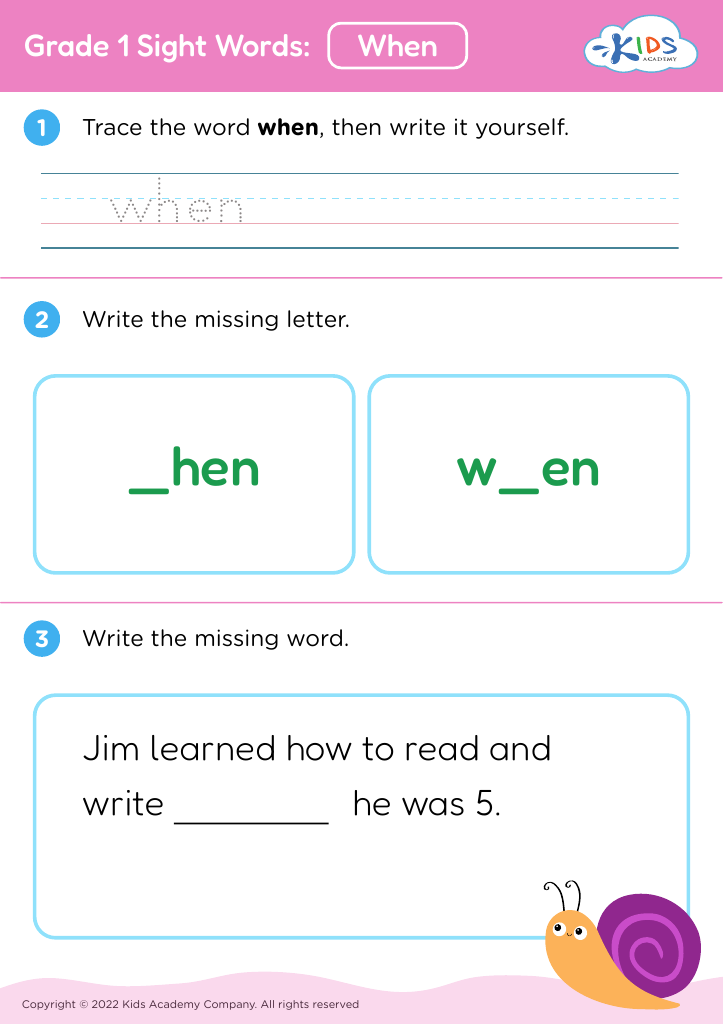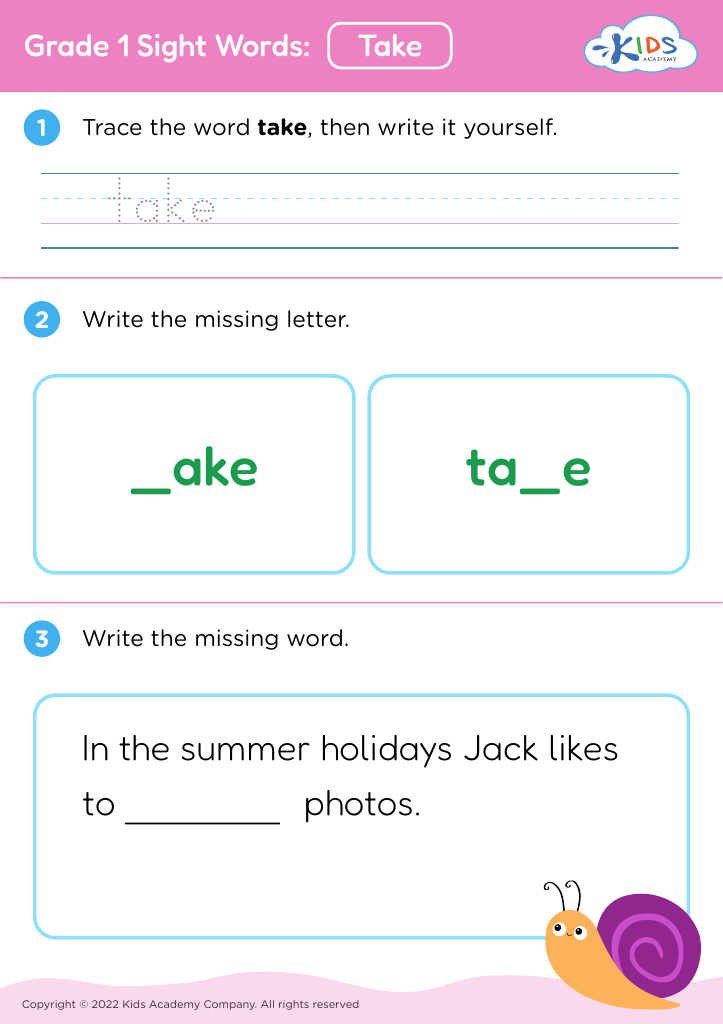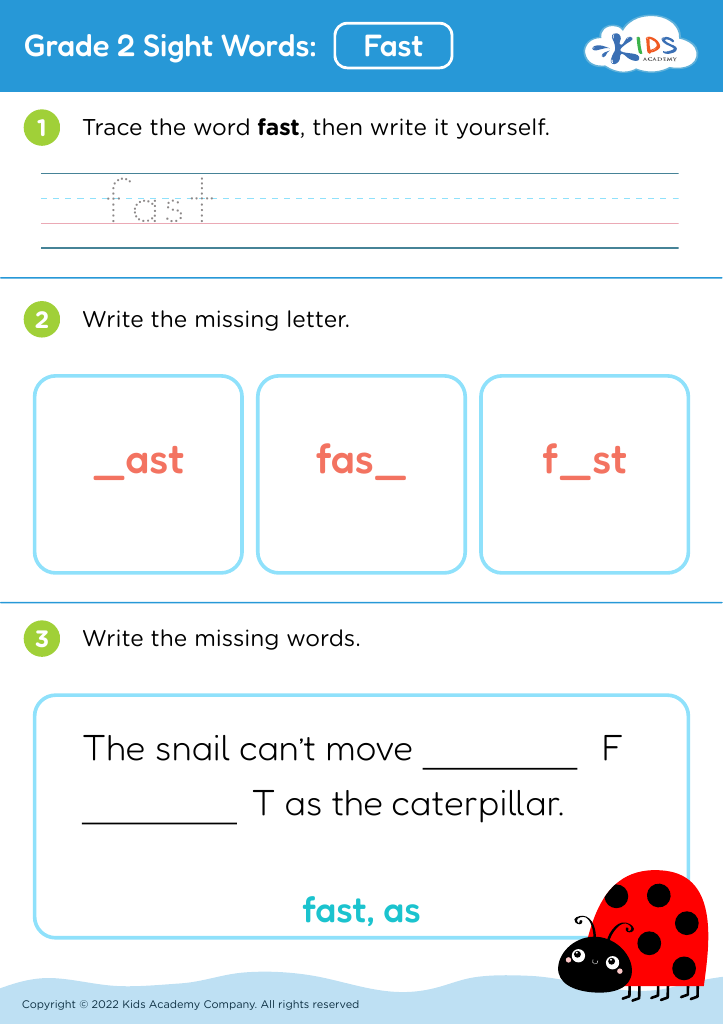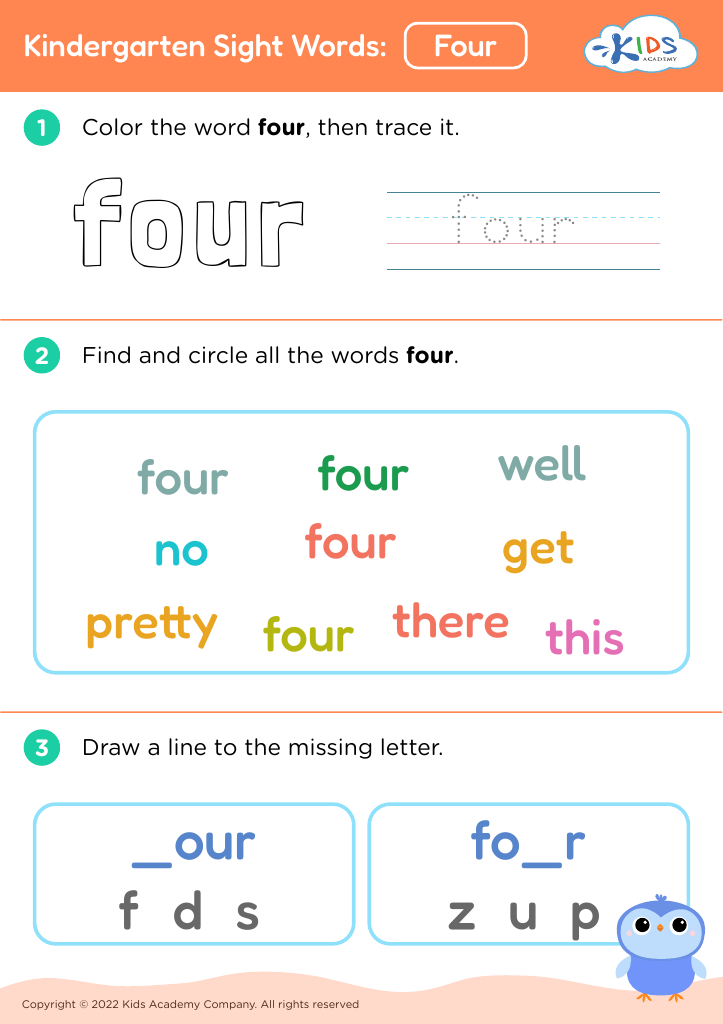Subtraction practice Reading Worksheets for Ages 5-8
5 filtered results
-
From - To
Enhance your child's subtraction skills with our engaging Subtraction Practice Reading Worksheets for ages 5-8. These worksheets combine fundamental subtraction exercises with captivating reading activities, making math practice both fun and educational. Each worksheet is thoughtfully designed to improve reading comprehension and numerical abilities simultaneously. Perfect for early learners, our sheets introduce subtraction concepts through interesting stories and relatable scenarios, ensuring sustained focus and deeper understanding. With colorful illustrations and step-by-step instructions, our worksheets provide a supportive learning environment for young minds, encouraging independent practice and boosting confidence in their math and reading skills. Discover effective, enjoyable learning today!


The Five Little Monkeys Nursery Rhyme Worksheet
Subtraction practice is a vital skill for children aged 5-8 because it lays the foundational understanding of mathematics, promoting cognitive development. At this young age, mastering basic arithmetic like subtraction helps develop critical thinking and problem-solving abilities essential for academic success.
Parents and teachers should prioritize subtraction practice because it enhances number sense—understanding how numbers relate to each other and form patterns. This comprehension is not merely academic but practical, as it allows children to navigate real-world situations, such as calculating change or dividing items equally. It fosters mental math skills, encouraged from an early age, to broaden their mathematical dexterity and efficiency.
This period is crucial because young brains are highly receptive to learning fundamental concepts through interactive and visual techniques such as counting objects, using fingers, or playing educational games. A child's early positive experience with math reduces anxiety linked to the subject later in life and builds a confident foundation for advanced topics like multiplication, division, and fractions.
Moreover, integrating reading with math helps reinforce comprehension skills. Story problems involving subtraction found in books make learning contextual and relatable, emphasizing dual literacy in numbers and words. Thus, focusing on subtraction practice in early education contributes significantly to a child's overall intellectual and practical skills.

 Assign to My Students
Assign to My Students



















